Holding corporations accountable with Hilary Pennington and Fernanda Hopenhaym

Transcript
HILARY PENNINGTON: Hi! Welcome and thank you for joining us for the fourth conversation in our live “On What Matters” series. I’m Hilary Pennington. I am a small, middle-aged white woman with very short hair sitting in a brown chair against a white wall, and I’m wearing a bright orange sweater. And my guest today is Fernanda Hopenhaym, a fierce advocate for human rights and a good friend. Fernanda, over to you. Do you want to just give a brief description?
FERNANDA HOPENHAYM: Hi, Hilary, and thank you so much for the invitation and also to the Ford Foundation. I’m Fernanda Hopenhaym Carrera. I’m a Latin American woman. I’m pale, I wear glasses, I have long black hair, and I’m wearing a black outfit and I’m sitting against a wall with a clock and a colorful scarf behind me.
HILARY PENNINGTON: Thank you. Fernanda is a very powerful advocate for the importance of corporate transparency and corporate accountability and a very strong believer that civil society has a major role to play in advancing better business practices. And we’re going to start with a short video about her work.
[On August 6, 2014, a Grupo México mine spilled 40 million liters of acidified copper sulfate into the Sonora and Bacanuchi rivers.]
Patricia Velarde, CCRS / Baviácora: We are here because of Grupo Mexico’s impunity, who in 2014 caused a mega toxic spill in the Sonora River, which was classified as the worst environmental disaster of mining in Mexico.
[Spill cost: 10 billion pesos, five times the allocated amount for the failed fund for remediation.]
Patricia Velarde: These polluted waters cause all these metals to accumulate and cause serious illnesses, cancer, organic damage to the liver and kidneys. And that is what we are going through both in my community and in the rest of the basin.
Activist: You’ve damaged our lives. The people are suffering. We are all suffering.
Ramón Miranda, CCRS / Aconchi: Here I bring my studies. I bring lead, arsenic, cadmium at levels much higher than Mexican standards. I am diabetic. I can no longer walk very much.
[The spill affected at least 24,000 people in eight municipalities: Arizpe, Banámichi, Huépac, San Felipe de Jesús, Aconchi, Baviácora, Ures and rural Hermosillo.]
Patricia Velarde: The mine has expanded, tripled, and quintupled its production. It continues to take away our wealth, it continues to poison our waters, it continues to affect our health and there is no power that can stop it.
[Authorities confirmed the presence of lead in the urine of more than 95% of the population, arsenic in more than 50%, and cadmium in more than 79%. In addition, the percentages of the population where “high risk” and “very high risk” were detected range from 1% to 10% in each municipality, in which the risk of developing arsenic poisoning and neuropathy is recognized.]
Ramón Miranda: Please get closer to the truth, come close to the truth.
Activist: At the expense of how many children? You are ending the childhood and future of children who aren’t even born yet. You should be responsible.
Patricia Velarde: We want the 36 water plants, plus any other that might be necessary, to give us specialized health care centers, to repair the environment, and to pay for the damage.
Ramón Miranda: It’s not possible that the government—that our taxes are used to repair the damage this company has committed.
Activists: Grupo México should be made accountable for this disaster.
[#SonoraRiver. #EightYearsOfImpunity. Basin Committee, Sonora River logo. Poder logo.]
HILARY PENNINGTON: What a powerful video. So let’s talk about the connection between corporate accountability and human rights. Tell me a little bit about how you see that connection, how it’s working today, and whether you feel we’re making progress.
FERNANDA HOPENHAYM: Well, that video makes me emotional and really hopeful because, you know, these are affected peoples that were just impacted by, let’s say, corporate sponsored disaster, and now they are, you know, a strong, fully-fledged social movement. And that’s the type of accompaniment that PODER is doing, the type of initiatives we’re pushing, and that’s where I see the connect between, you know, human rights and corporate accountability. We can only achieve accountability if we are organized and if we have strong social human rights movements pushing and demanding that accountability to businesses and to states. So I think that’s where the connection lies, you know: in building collective power, in really working together and bringing all the forces and all the voices to the table. So for PODER, you know, building knowledge, providing information, conducting research, developing information-based tools that then communities and rights holders can use to push for that accountability, to sit down with state actors, to advocate vis-à-vis companies for them to remedy the damage or to prevent damage is an essential part of what we do, and it’s where we see a clear connection between the human rights agenda and the corporate sector. You know, I think the days where we only demanded accountability and transparency to state actors are way behind and now we really need to consider corporations as, you know, also responsible for, you know, preventing harm or abstaining from doing harm and also providing remedy when they do so.
HILARY PENNINGTON: Well, I think it’s so important because many of those corporate practices are very, very opaque to the people who are impacted by them, and the role you play in helping to translate and connect is essential. So I want to ask you, just building on the theme of human rights, and you’ve talked about this a little bit, but talk more about why you feel a human rights approach is so essential in the organizing that you do—and just, basically, what is a human rights approach?
FERNANDA HOPENHAYM: Yeah. So I mean, we have all the human rights instruments and all this complex body of work, knowledge, and a community of practice working on human rights. But it’s, to put it simply, it’s just about human dignity: what makes us human, what makes us who we are, what allows us to live a dignified life, access to basic provisions, living our life freely with our identities, understanding how all this intersects. So for me, of course, there is a complexity and a technical approach to it, but it’s also about, again, the basic dignity that all human beings deserve and should be entitled to from the day they are born, and so it’s also about reducing inequality. It’s also about opening access for these affected communities to be on the table, to sit on the table. It’s also about analyzing privilege. This is an essential component of the work we do. We work from a power analysis and a privilege analysis perspective so that we can use that power and that privilege to push for justice and to support people that are actually affected by corporate practices to, again, sit on the table and use their own voice. We’re not giving voice to anyone. These people have their own voice; we’re just trying to bring that perspective to the table. So that’s where I see the human rights elements to play in practice. But then, of course, we have human rights due diligence, we have many other concrete instruments that are based on the different instruments we have on human rights, including our national constitutions, that should protect their human rights to work on corporate accountability. So that’s a very technical connection, but it’s also there and it’s part of the work we’re doing.
HILARY PENNINGTON: No, what you’re really talking about, braiding together different strands, I mean, constitutions together with human voice in a way that is necessary not only to create the world that we want, but to call it out when there’s transgression. So I want to shift the subject for a little bit to talk about a topic that you and I have talked about before, which is you, as a woman leader and a feminist leader of an NGO in Latin America, and maybe to just get you to talk a little bit about what your experiences have been as a leader. And then, you know, moving from your experience as an individual to comment, if you would, about why and how feminist approaches matter in the pursuit of corporate accountability and human dignity.
FERNANDA HOPENHAYM: I think that, yeah, I learned it firsthand before even being able to name it and put it on the table and incorporated it into the work we do. So, you know, corporate accountability and, generally speaking, anything related to business, finance, money, as you know, generally speaking, has been historically male-dominated. So I think for women, since our upbringing to be honest, we are not taught how to, you know, relate in a healthy way with money on economic issues, again, broadly speaking. So I think that when I started working on this issue, even before I joined PODER, I was pretty much alone in many spaces or with a small group of fellow feminists trying to push for this agenda. And I mean, you and I have discussed how, generally speaking, also the kind of human rights community of practice was male-dominated not that long ago. So I think, of course, a lot of challenges in trying to be, you know, bold to push for things, to call it out to colleagues when they were having, you know, sexist behaviors, to acknowledge that we needed to join forces with other women and kind of stick together and push for change, that there was work to be done internally in our organizations and with our teams as well as externally with colleagues from other NGOs, with donors, with the stakeholders we were engaging with, with local communities we’re accompanying, and how do we approach that in a non-colonialist way? So it’s, you know, like a lot of thoughts and lessons learned throughout the years that I think made me the person I am now as a leader. I tried to exercise, you know—I shared leadership with a co-director, of course—I try to mentor my colleagues and open doors for younger women to join. I try to be mindful whenever I organize, let’s say, an event or anything to bring a diversity of voices and of identities to the table. And that, for me, is feminism in practice, right? It’s a feminist way of living and leading. So I’ve faced a lot of challenges, you know, from people silencing me, to not taking me too seriously because I was younger or because I wore certain clothes, or used a lot of the hands and the humor, the sense of humor. But then I think, you know, bit by bit, a group of us has been able to push and we’re more, we’re more, that have joined the party. And now we see a lot of female leadership. And, I mean, not only in feminist organizations, but everywhere in the human rights community. So I hope, you know, I have contributed to that a little bit.
HILARY PENNINGTON: Oh, I think you have. And then what do you see on the corporate side? On the corporate accountability side, do you see a rising group of women leaders? You know, what is it like to take who you are and these feminist approaches into the work on corporate accountability?
FERNANDA HOPENHAYM: Well, I think there are a lot more women now in corporate accountability and, you know, business and human rights than 10 years ago, for sure. And we still face a lot of, you know, resistance a little bit from our colleagues, some sexist, you know, like this kind of hidden machismo that we call in Spanish, you know, like the micro, micro behaviors that really are still trying to hold, you know, the privileges and the power and the spaces. It’s difficult, and I understand if you’ve been there forever and you’re an expert, now that you need to, you know, leave that seat for another person to join the table. People don’t want to lose that, and I understand it. But it’s the work that we need to do collectively as a community of practice. And I have a lot of great, strong feminist colleagues in the corporate accountability world everywhere, in all regions, trying to push for that change. And that also implies incorporating a feminist lens to the work we do. So it’s about our relationships, it’s about sharing power and spaces. It’s about respecting the knowledge that we have as women, but it’s also bringing that lens to the policy proposals we develop or, you know, the advocacy efforts with that. So I think it has a lot of elements in it.
HILARY PENNINGTON: One of the things I really appreciate about the work is the ways in which I think that kind of approach, that feminist approach and that diagnosis of power and how power works in the world, can actually help us imagine what’s going to be the impact of a policy proposal. You know, they’re not always neutral and things that sound good in the abstract actually land in very different ways on different populations, and I think that’s, you know, that’s one among many of the assets that you and these approaches bring to the work. So, civil society, we live at a time when it’s become almost easy to talk about the shrinking space for civil society. But I think it is true that civic space is transforming, has been transforming over recent years, and I would love it if you would talk a little bit about how you see those changes: what you see as the threats but also what you see as forms of resilience, persistence, and pushing back.
FERNANDA HOPENHAYM: Well I think, I always try to think, you know, about the backlashes or the conservative forces that are trying to, you know, silence the public participation by civil society, as you know, because, as a backlash, because there’s a back. Because there’s a lash, we’re advancing. So I think that, I don’t know, in the over 20 years I’ve been around, working on these issues, I’ve seen a lot of advances, actually: transparency laws, public participation, opening of spaces. So it’s not all that bad. But I do think that we’re at a very challenging moment in time where we need to hold the line because, again, these forces are there, they’re trying to maintain the status quo and maintain privilege and silence certain voices, because they don’t want to lose power. Bottom line. So I think that we need to continue to organize, and I think one way of holding the line is collective organizing and, you know, having a collective voice, and that means to sometimes negotiate with our fellow civil society partners, you know, and agree on certain points that we have in common and defend those. Because if we get too much into the differences, we won’t advance or hold the line.
HILARY PENNINGTON: So you’re really describing that there are threats outside of civil society and there are threats inside civil society, and both of them require care and attention. So we have time for one more question before we return to some of the questions that we’ve gotten from the audience. And I want to just close with a question that I ask everyone, and it’s a little bit related to this idea of persisting against backlash, but it’s just the question: What gives you hope?
FERNANDA HOPENHAYM: Well, young people, particularly young feminists give me a lot of hope. I have two kids. You know, my kids are hitting the teenage moment. Their friends are amazing; the kind of conversations they have are really, really, I mean, hopeful. And I think they don’t see, like, a future that it’s not bright. So kind of being in touch with them, that connection, really it’s contagious, makes me hopeful. And also like, you know, young people’s movements, young people fighting climate change. You know, young people, young feminists fighting for rights. You know, LGBTI young people that are pushing for their identities to be recognized and respected, young Indigenous people. So I think that we should engage much more with the youth because there is a lot of hope that lies there and we don’t want to leave a mess for these people. So I hope we can do a good job. And that hope really, you know, it’s contagious for us that we’re in, you know, our 40’s or 50’s or whatever, and we can work together with them in an intergenerational fashion. That, I think, would be great.
HILARY PENNINGTON: I love that. That does give hope. Well, we’re going to turn to our questions from the audience. We have time to take two of them. And the first one, actually, It keys a little bit off of what you have just been talking about. So it’s a question from Kevin, who wants to know your thoughts about what’s the business case for eliminating poverty among young people?
FERNANDA HOPENHAYM: Well, it touches a little bit about my final thoughts further from the previous question, because I think that, I mean, we shouldn’t be doing a case for businesses right on young people and how they are, you know, they have the future in their hands because we’re not going to be there eventually. And I think that one of the challenges with the businesses is that they have a short-term, you know, way of operating because they need to create wealth and create profit for their shareholders. So that’s kind of the original sin of many of the problems that we are facing, including in the corporate accountability world. So I think that when we think about young people and opportunities for young people, we’re thinking about sustainability, also, and long-term plans by corporations. And I think that that is a challenge due to these short-term obligations they have, to fiduciary duties, and so on. So I mean, having conversations also with some private sector actors that are pushing for, let’s say, human rights approaches and opening new opportunities. This comes up a lot. It’s difficult for them to conciliate internally those two visions. So I hope that we can make the case for businesses that this is the only way for them to thrive in the long term.
HILARY PENNINGTON: Yes. And to broaden the notion of shareholder to stakeholder. Right? Which is an essential piece of what you just are saying. All right. We’re going to go to a question from Cesar. And that question is: What role does online organizing play for civil society in advocating for better business practices?
FERNANDA HOPENHAYM: So I think online organizing is really useful and helpful. We’ve seen it a lot in, you know, political campaigns and other ways of organizing. And I think that for, let’s say, corporate accountability and human rights organizing, it has become a very important tool. It cannot be a substitute for, you know, community organizing or in-person collective work, but I think as a tool, it connects many people around the world. It speaks a lot to younger people going back to this element, you know, this new generation that uses, you know, social media that I can’t even manage like TikTok and those things. And, you know, using those tools and acknowledging that we can speak to certain people by using those tools, it’s very important. And again, I think it’s a compliment to the work we’re doing on the ground with actual people because we can’t forget that we are bodies, mind, souls, and a screen is not enough to kind of come together as a whole and build collective power. But I think it’s an interesting tool that we should continue to use and even exploit or explore a little bit more.
HILARY PENNINGTON: Yes. Well, thank you for holding those two together. Right? The online and the embodiedness of what it means to create community and connection. And I want to just thank you so much for a wonderful, wonderful conversation, for the work you do, and to everyone who has joined in. Thank you, too, for joining us. And we have two more conversations coming up with activists in South Africa and in the U.S. And if you stay tuned, we’ll show you how to tune in for those. Thank you, Fernanda.
FERNANDA HOPENHAYM: Thank you very much, Hilary. It’s been my pleasure and my privilege. I really, really appreciate this opportunity.
End of transcript.
Accessibility Statement
- All videos produced by the Ford Foundation since 2020 include captions and downloadable transcripts. For videos where visuals require additional understanding, we offer audio-described versions.
- We are continuing to make videos produced prior to 2020 accessible.
- Videos from third-party sources (those not produced by the Ford Foundation) may not have captions, accessible transcripts, or audio descriptions.
- To improve accessibility beyond our site, we’ve created a free video accessibility WordPress plug-in.
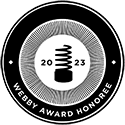
Welcome to “On What Matters,” a conversation series between our executive vice president Hilary Pennington and social justice leaders on the frontlines of change.
This episode features Fernanda Hopenhaym, co-Executive Director of PODER, an advocacy organization dedicated to corporate transparency and accountability in Latin America from a human rights perspective.
Fernanda talks with Hilary about the importance of a human rights perspective in the work around corporate accountability, and the need for a feminist approach to infuse the work.
As she says, “We can only achieve accountability if we are organized and if we have strong social human rights movements pushing and demanding that accountability from businesses and states – human rights is about living our lives with dignity.”
Learn more about PODER at: PODERLatAm.org
Other videos in this series
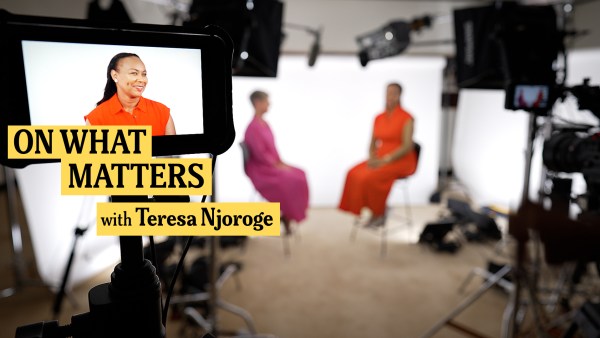
The Power of Restorative Justice With Teresa Njoroge and Hilary Pennington
Teresa Njoroge, founder and CEO of Clean Start Solutions and criminal justice reform advocate, and Hilary Pennington, executive vice president of programs at the Ford Foundation, discuss helping people who have been through Kenya’s justice system find new dignity and hope through employment.
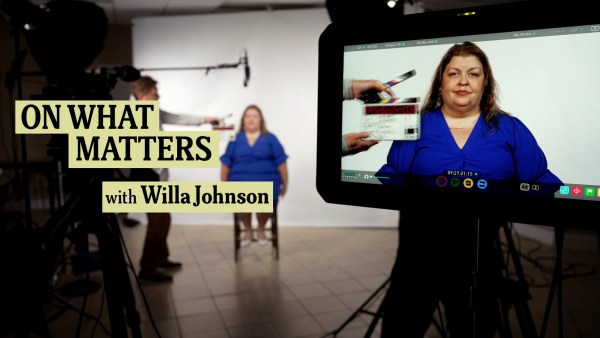
The Power of Appalachian Art With Willa Johnson and Sarita Gupta
Willa Johnson, director of the film department at Appalshop, and Sarita Gupta, vice president of U.S. programs at the Ford Foundation, discuss heartland creativity and amplifying rural narratives.
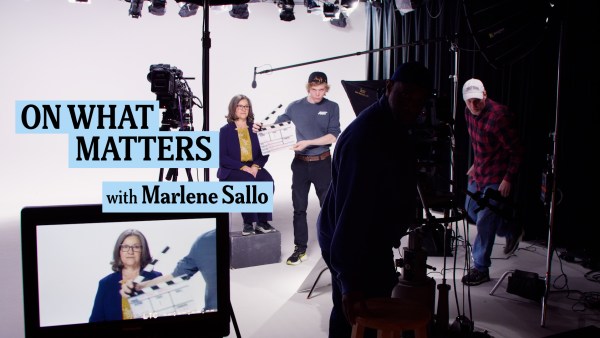
Centering Disability Rights and Justice With Marlene Sallo and Hilary Pennington
Marlene Sallo of the National Disability Rights Network and Hilary Pennington of the Ford Foundation talk about the systems that support and fail the disability community and how disability justice is essential to building a multiracial democracy.
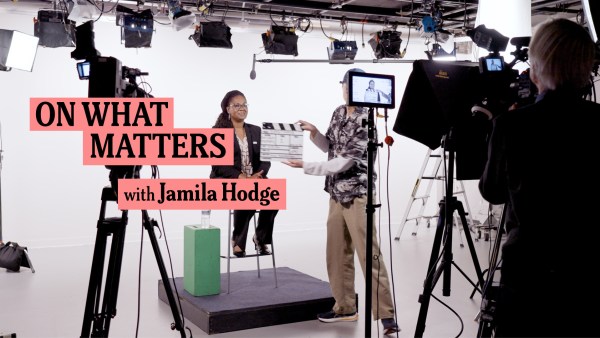
Advancing Community-Based Violence Intervention With Jamila Hodge and Sarita Gupta
Jamila Hodge of Equal Justice USA and Sarita Gupta of the Ford Foundation talk about community-based violence intervention and the importance of promoting a trauma-informed public health response to violence. Jamila explains how, if we want to address institutional racism, we must address the root causes of violence and center those most impacted.
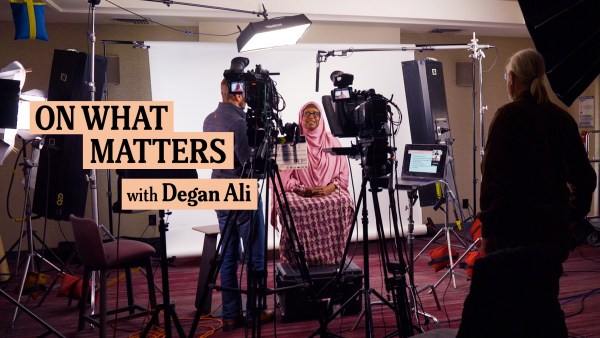
Decolonizing Humanitarian Aid With Degan Ali and Martín Abregú
Degan Ali and Martín Abregú talk about shifting to locally led development and decolonizing aid. Degan shares why we must rethink current structures of providing aid and have local civic society organizations play a stronger and more strategic role in global policy debates.
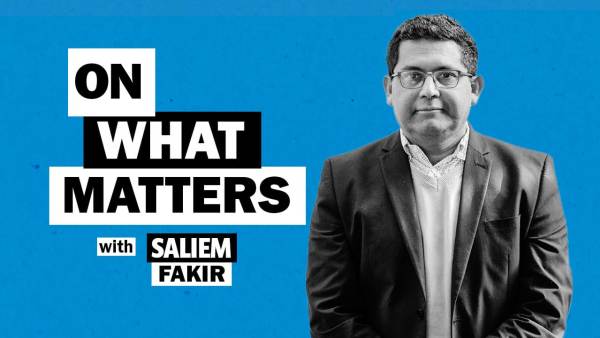
Working Towards a Truly Just Energy Transition with Hilary Pennington and Saliem Fakir
Saliem Fakir, the founder and executive director of the African Climate Foundation, the first grantmaking foundation in Africa focused on furthering solutions for sustainable climate development, joins Hilary Pennington to discuss the urgent need to address climate change and South Africa’s promising Just Energy Transition Partnership.
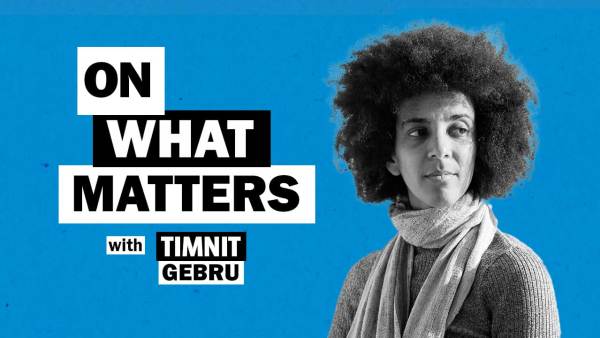
Making AI systems more just with Hilary Pennington and Dr. Timnit Gebru
Dr. Timnit Gebru, founder and executive director of the Distributed Artificial Intelligence Research Institute (DAIR), joins Hilary Pennington to discuss how an inclusive and collaborative approach to creating AI systems can address the uneven benefits and harmful impacts of technology on society.
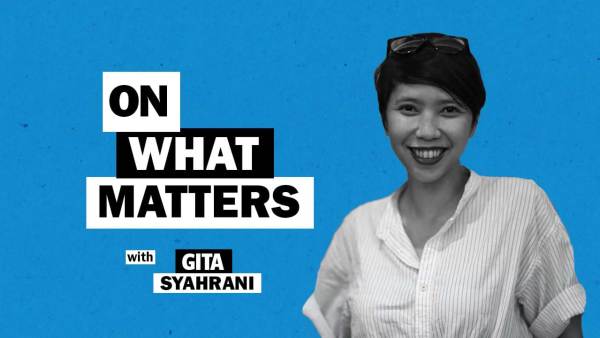
Saving forests while eradicating poverty with Hilary Pennington and Gita Syahrani
Hilary Pennington talks with Gita Syahrani about how engaging Indigenous and local communities in sustainability efforts can lead to greater economic mobility for them. Her work shows how civic engagement at the district level can have global impact.
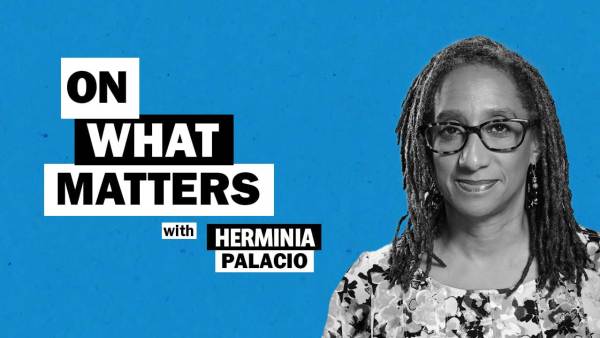
The future of reproductive justice with Hilary Pennington and Dr. Herminia Palacio
Hilary Pennington and Dr. Herminia Palacio discuss this moment in the reproductive justice movement, how different communities are impacted, and what the United States can learn from countries that have won gender and reproductive health victories.
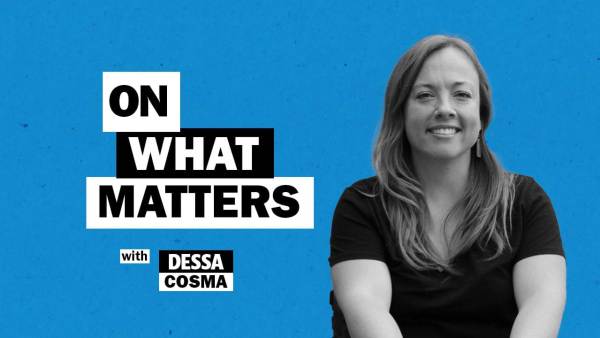
Reimagining how we think about disability with Hilary Pennington and Dessa Cosma
Hilary Pennington talks to Dessa Cosma about disability justice and inclusion. They discuss the importance of using intersectional approaches to activism and how to restructure the economy to be more just for disabled people.
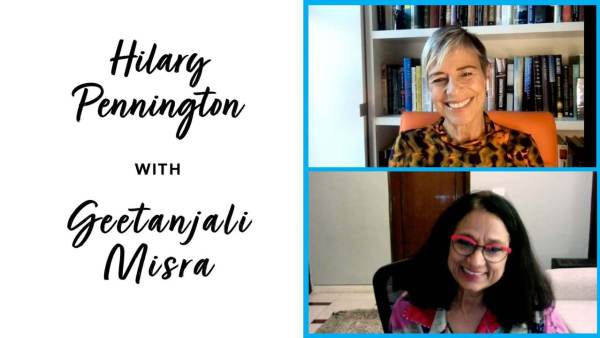
The future of feminism: Hilary Pennington with Geetanjali Misra
Geetanjali Misra has bore witness to the evolution of feminism both on the ground in the U.S. and India and in her work as an activist. Seeing patterns change and movements shift, she speaks about the importance of intersectionality in building a more inclusive feminist future.
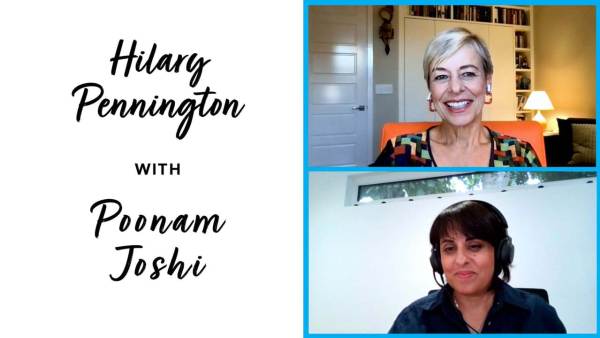
COVID’s impact on civic space: Hilary Pennington with Poonam Joshi
Civic space is essential for democracy. It allows people to participate in society and communicate freely and without discrimination. But, according to Poonam Joshi, director of Funders’ Initiative for Civil Society director, there are threats that need to be addressed before we solidify the civil society we want in the future.
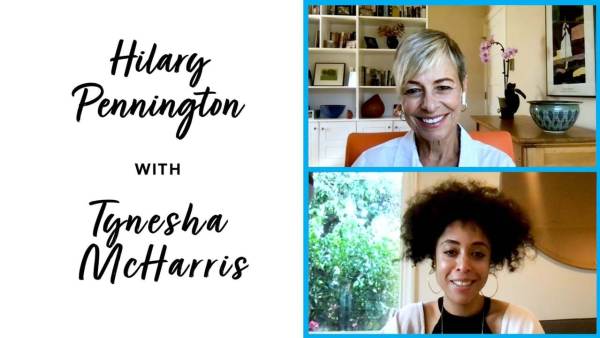
Funding Black feminism: Hilary Pennington with Tynesha McHarris
Black feminist movements are advancing social justice globally. Tynesha Harris, one of the founders of the Black Feminist Fund, aims to channel more support to movement leaders and create a model of true solidarity. Racial, gender, and class injustice need an intersectional approach that acknowledges the inherent value of Black women.

Philanthropy and environmental justice: Hilary Pennington with Laura García
When it comes to climate change, time is running out. But communities all over the world are working on solutions, and philanthropy needs to center their ideas and perspectives to win this fight. Laura Garcia, CEO of GlobalGreen Grants Fund, shares how funding grassroots movements can address challenges at the intersection of social and environmental justice.
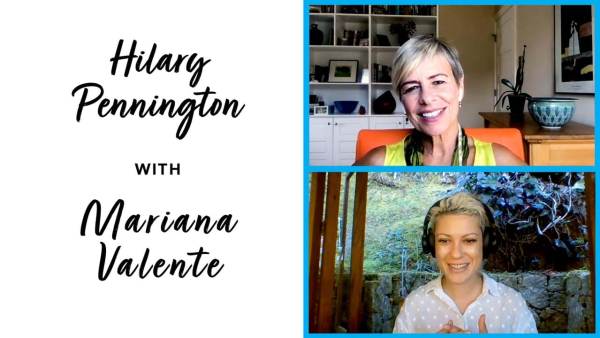
Technology and gender: Hilary Pennington with Mariana Valente
The internet is a force for good, but it must be guided by fundamental human and privacy rights and offer social protection, said InternetLab director Mariana Valente. In this way, technology can advance equality and, with the right policies in place, be used as a tool for advocates to organize.
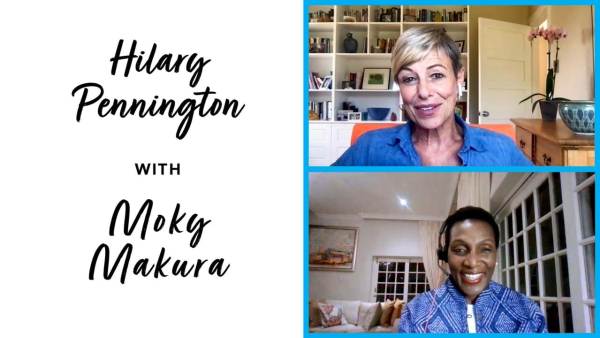
The power of storytelling: Hilary Pennington with Moky Makura
For too long, Africa has been defined in the media by stereotypes and oversimplified narratives. With Ford’s support, Africa No Filter is disrupting these narratives by empowering storytellers helping to create a nuanced, balanced view of the continent and an equitable, inclusive way of how to partner with it.
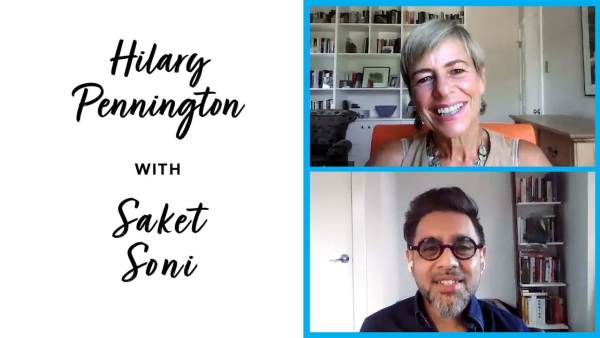
What essential workers need right now: Hilary Pennington with Saket Soni
Disasters present the opportunity to bring us together and give us the chance to reevaluate our priorities and ask what’s really important. Labor organizer Saket Soni sees COVID-19 as a prologue to other threats, like climate change. He says disaster responses need to focus on strengthening essential workers.
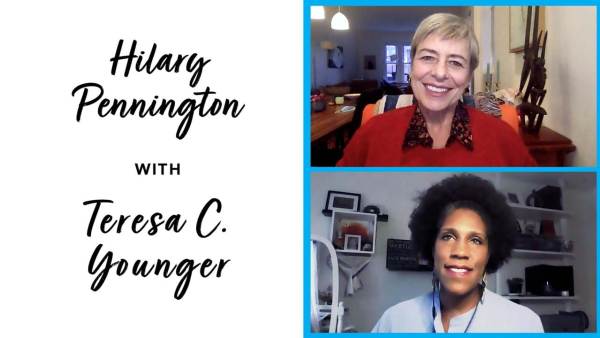
Philanthropy and Black women: Hilary Pennington with Teresa C. Younger
Social justice organizations led by women of color often receive less funding. Teresa C. Younger, CEO of the Ms. Foundation, explains why philanthropy needs to center women of color to address systemic racism and uplift women and girls of color for a more just future.
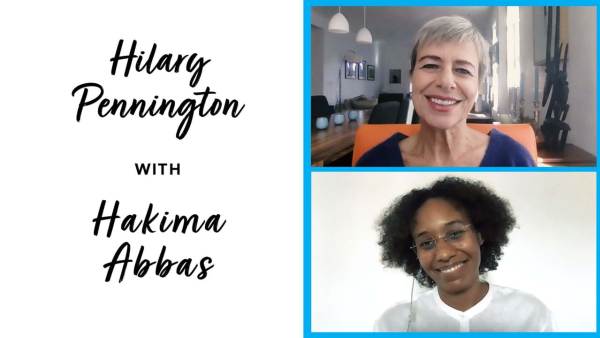
How young feminists are organizing: Hilary Pennington with Hakima Abbas
COVID-19 has impacted the way we work, but it also exacerbated gender inequality in the workplace. Hakima Abbas, of the Association for Women’s Rights in Development, believes we can prevent any further damage by including feminist leaders across the board in devising solutions.
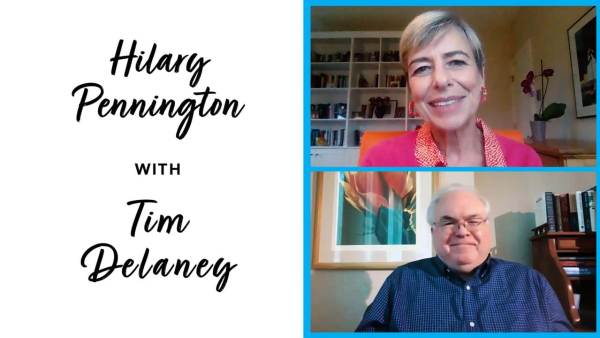
How nonprofits make an impact: Hilary Pennington with Tim Delaney
Over one million nonprofits exist in the United States, but Tim Delaney, the CEO of the National Council of Nonprofits, has an idea to make them even more impactful. To him, bringing social justice groups together can transform philanthropy for the benefit of all.
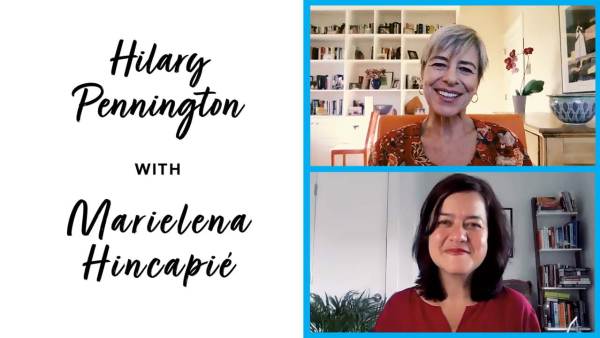
Immigrants are essential: Hilary Pennington with Marielena Hincapié
Immigration has been used as a weapon to divide the United States. The National Immigration Law Center aims to help the country understand that immigrants are not only important members of our communities and essential workers, but they are also valuable political constituencies needed to make American democracy work.
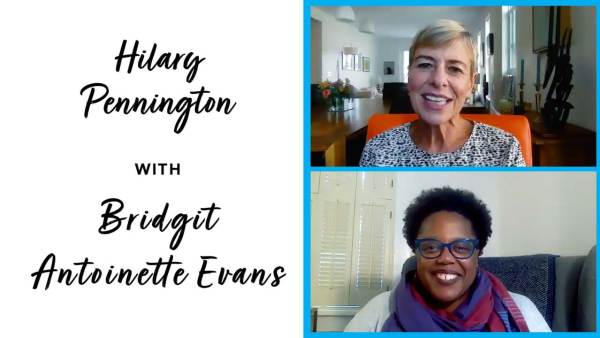
Social justice and pop culture: Hilary Pennington with Bridgit Antoinette Evans
Pop culture plays an important role in advancing social justice. Bridgit Evans of Pop Culture Collaborative produces cultural strategies that build on points of connection to ensure policy changes are not just symbolic. By finding commonalities through culture, she believes we can create a world where everyone feels they belong.
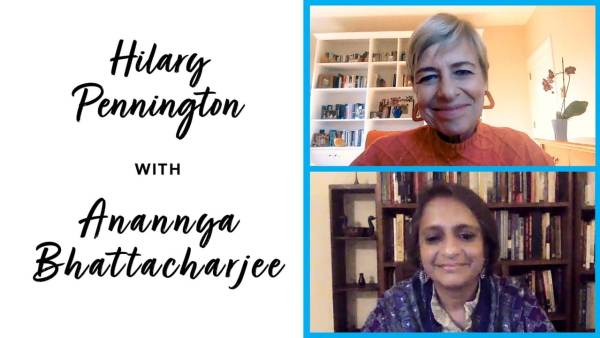
Global work needs to be local: Hilary Pennington with Anannya Bhattacharjee
While the labor movement has worked to improve the lives of garment factory workers globally, activist Anannya Bhattacharjee advocates that solutions need to start locally and come from the ground up to have a significant impact on workers’ lives.
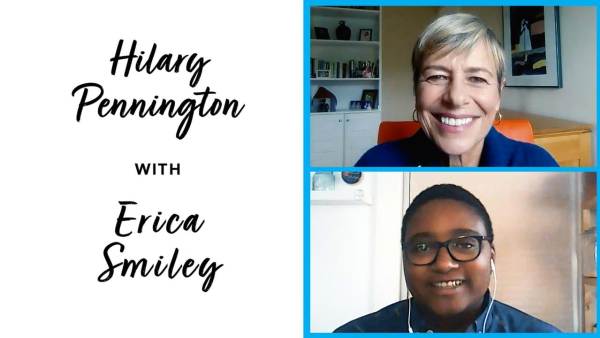
Essential workers are the economy: Hilary Pennington with Erica Smiley
The COVID-19 pandemic has dramatically changed the way we as a world work. As we face this inflection point, Erica Smiley, executive director of Jobs With Justice, believes people—especially essential workers—need to have the right to come together collectively to organize and negotiate their conditions to build a global economy that works for all.

The urgency of this social moment: Hilary Pennington with Eric Ward
We need to dismantle racism to make inclusive democracy truly possible. Eric Ward of Western States Center believes smaller movements can help support bigger waves of change. From creating cohorts of emerging leaders to encouraging small group interactions can help protect democracy and put an end to white supremacy.